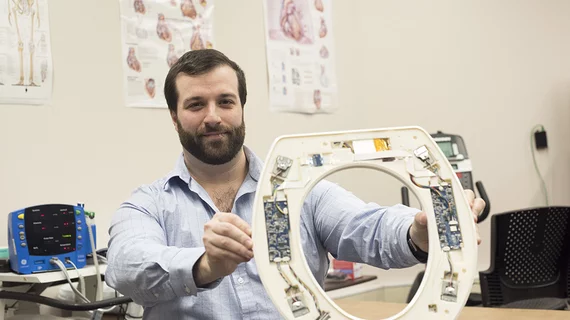Even if it’s not a topic for casual conversation, everyone needs to use the bathroom at some point, right? Now, researchers from the Rochester Institute of Technology (RIT) are leveraging those “natural processes” to provide insights into heart health with a toilet seat-based cardiovascular monitoring system.
The researchers believe the invention can lower readmission rates for congestive heart failure by alerting clinicians to a patient’s deteriorating condition while at an asymptomatic stage. The seats are designed to measure heart rate, blood pressure, blood oxygenation levels and the patient’s weight and stroke volume, or the amount of blood pumped from the heart with each beat.
Nicholas Conn, PhD, a postdoctoral fellow at RIT, is the founder and CEO of Heart Health Intelligence, which will seek FDA clearance for the product. The plan is to sell the seats to hospitals, which would then issue them to heart failure patients after discharge. Algorithms, which are still under development, would analyze the data collected from patients and alert advanced practice providers and cardiologists if a patient’s readings look problematic.
In a press release distributed by RIT, Conn pointed out that 25 percent of patients with congestive heart failure are readmitted to hospitals within 30 days of discharge, and 45 percent of them are readmitted within 90 days of discharge. Given that CMS is financially penalizing facilities with higher-than-expected readmission rates for heart failure patients, hospitals are incentivized to keep those rates as low as possible.
Conn said the cost of providing 150 patients with their own toilet seats is $200,000, well below the approximately $500,000 penalty for readmitting 150 additional patients in a year, based on national averages, according to the release.
The research group published some of its early work with the toilet seat-based system in October in the journal JMIR mHealth and uHealth. Pre-clinical and human testing are “well underway,” the release stated.

